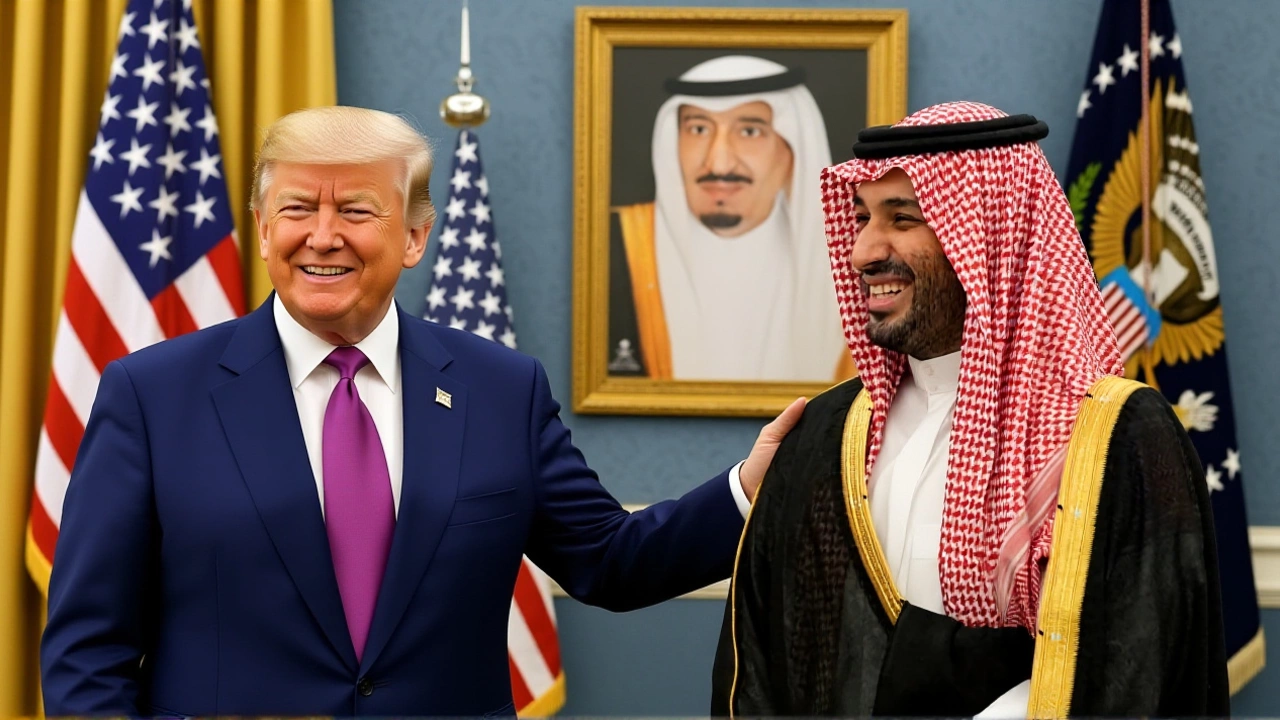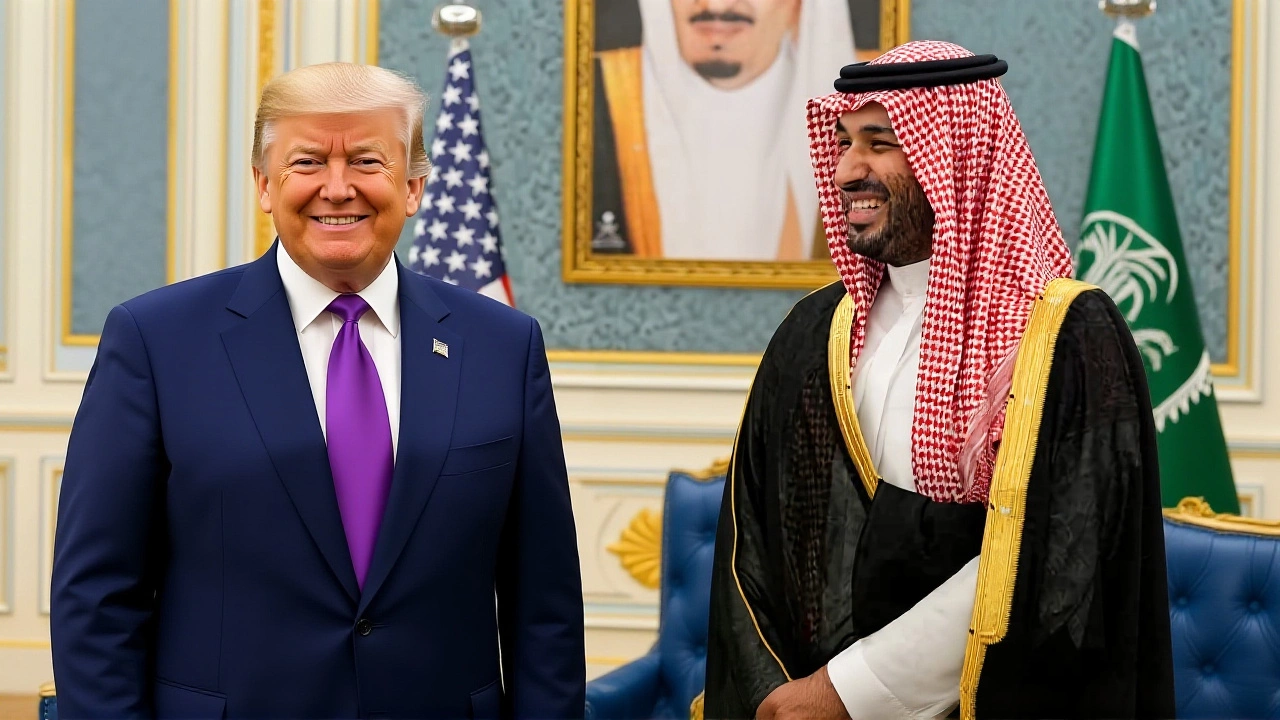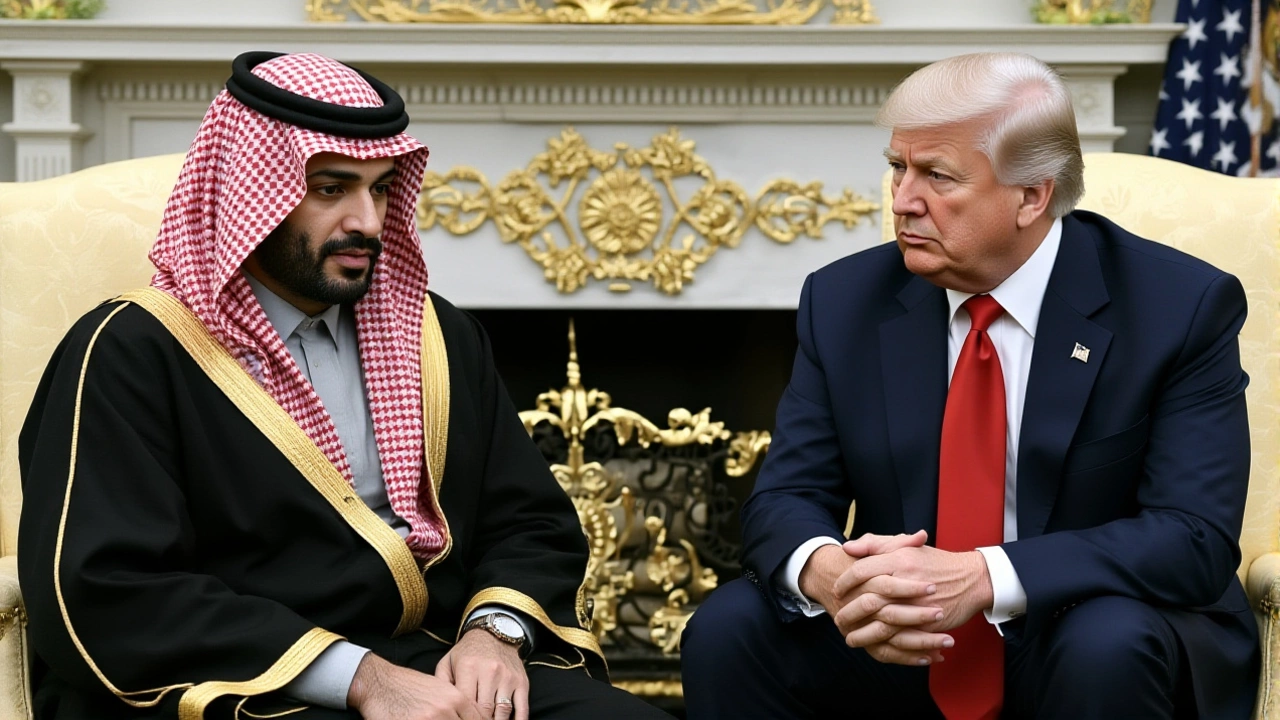When Donald Trump sat across from Mohammed bin Salman in the White House on November 18, 2025, he didn’t just shake hands—he rewrote history. In front of reporters, Trump flatly denied what U.S. intelligence agencies had spent years confirming: that the Saudi Crown Prince approved the brutal killing of Jamal Khashoggi in Istanbul in 2018. "He knew nothing about it," Trump declared, dismissing the findings of the Office of the Director of National Intelligence and the Central Intelligence Agency. It wasn’t just a denial. It was a dismantling of accountability.
"Things Happened" — A Dismissal of Truth
The moment came during a rare televised Oval Office meeting. ABC News reporter Rachel Scott asked why Americans should trust the Crown Prince, given the 2021 declassified report that concluded Mohammed bin Salman had personally authorized the operation to capture or kill Khashoggi. Trump didn’t answer the question. He sidestepped it. "You're mentioning somebody that was extremely controversial," he said. "A lot of people didn't like that gentleman that you're talking about. Whether you like him or didn't like him, things happened." That phrase—"things happened"—became the new euphemism for state-sponsored murder. It wasn’t just vague. It was chilling. Khashoggi wasn’t just a "controversial" figure. He was a U.S. resident, a father, a journalist who had fled Saudi Arabia’s repression to write for the Washington Post from his home in McLean, Virginia. He walked into the Saudi Consulate in Istanbul on October 2, 2018, and never walked out. A 15-member Saudi hit squad dismembered him. Audio recordings captured his screams. The CIA analyzed them. They didn’t just suspect the Crown Prince’s involvement—they concluded with "high confidence" that he ordered it.Trump’s Economic Excuse
Trump didn’t stop at denial. He pivoted to money. "It would not be acceptable," he said, "to reject what he claimed was $110 billion in Saudi investment." But here’s the twist: that number doesn’t add up. The Congressional Research Service confirms the total value of arms deals signed during Trump’s first term was roughly $110 billion—over a decade. Trump was conflating a decade’s worth of contracts with a single year’s value, turning a strategic partnership into a financial blackmail argument. He also questioned Khashoggi’s status as a U.S. resident. "Is that right?" he asked, as if the journalist’s legal status somehow diminished the crime. Khashoggi wasn’t a citizen, yes—but he was a lawful permanent resident. That meant U.S. law applied. The Federal Bureau of Investigation had jurisdiction. And yet, Trump treated the killing as a foreign affair, not a violation of American values.
History Repeats Itself
This wasn’t a new stance. Back in 2018, after the murder, Trump told CBS: "Could it be them? Yes." But then he added, "There will be severe punishment." There wasn’t any. In November 2018, he issued a statement calling the killing "an unacceptable and horrible crime"—but then immediately shielded the Crown Prince, repeating Saudi denials and saying, "maybe he did and maybe he didn't." By 2019, he’d already dismissed calls for an FBI investigation: "I think it’s been heavily investigated." It hadn’t been. Not really. The U.S. government never prosecuted anyone. Turkey convicted 15 Saudis in absentia. The U.S. didn’t lift a finger. Now, in 2025, Trump is doing more than ignoring the facts—he’s actively reversing policy. The Biden administration’s 2022 "Khashoggi policy," which imposed visa sanctions on foreign agents targeting dissidents, was meant to send a message: kill a journalist, and you won’t get a U.S. visa. But Trump’s words in the Oval Office signaled that policy is dead. No enforcement. No consequences. Just silence.The Crown Prince’s Rehabilitation
Mohammed bin Salman, now 39, has spent the last seven years quietly rebuilding his image. He’s hosted tech summits in Neom. He’s opened cinemas. He’s courted Hollywood. He’s made deals with Elon Musk and met with European leaders. The world, it seems, is willing to look away—if the money flows. In the White House meeting, the Crown Prince called Khashoggi’s death "painful" and said his government had "improved our system." But there’s no evidence of real reform. Saudi Arabia still imprisons activists. Still silences critics. Still uses digital surveillance to track dissidents abroad. The "improvements" are PR, not justice.
What’s Next?
There are no immediate consequences scheduled. No congressional hearings. No State Department review. The Senate Foreign Relations Committee has been quiet. The House has been distracted. But the damage is already done. By publicly rejecting U.S. intelligence, Trump has emboldened other authoritarian leaders. If the Crown Prince can walk into the White House and have his crimes erased by the President, what message does that send to China? To Russia? To Hungary? The world watches. Journalists in exile now wonder: Is the U.S. still a safe haven? Or just another place where power decides who matters—and who doesn’t.Frequently Asked Questions
How does Trump’s statement contradict U.S. intelligence?
The February 2021 ODNI report concluded with "high confidence" that Mohammed bin Salman approved the operation to kill Jamal Khashoggi, citing intercepted communications and direct involvement by his security team. The CIA independently reached the same conclusion. Trump’s claim that the Crown Prince "knew nothing about it" directly contradicts these assessments, which were based on forensic audio analysis, satellite data, and witness testimony from Turkish authorities.
Why does Khashoggi’s U.S. residency matter?
As a lawful permanent U.S. resident, Khashoggi was protected under U.S. law, even though he wasn’t a citizen. The FBI has jurisdiction over extraterritorial crimes targeting U.S. residents, and his murder triggered a legal obligation to investigate. Trump’s dismissal of his residency status ignores this legal framework and weakens protections for the nearly 13 million lawful permanent residents living in the U.S. who rely on those safeguards.
What was the Biden administration’s "Khashoggi policy"?
Announced in February 2022, the policy imposed visa restrictions on foreign government agents who harass, threaten, or target dissidents, journalists, or activists abroad. It was designed to deter transnational repression. Over 30 individuals linked to Saudi Arabia, China, and Russia were sanctioned under it. Trump’s public rejection of the intelligence behind the policy signals a likely rollback, leaving global critics more vulnerable.
Is the $110 billion figure accurate?
No. The $110 billion Trump cited is the total value of U.S.-Saudi arms deals signed between 2017 and 2020, spread over four years—not a single-year investment. The Congressional Research Service confirms no single year of Saudi spending approached that amount. Trump inflated the number to justify ignoring human rights, turning economic interests into a moral shield.
What’s the international reaction likely to be?
European allies, human rights groups, and UN officials are expected to condemn the remarks. Germany and Canada have already signaled they’ll reevaluate defense contracts. The UN Special Rapporteur on extrajudicial killings called the White House statement "a dangerous precedent." But without U.S. leadership, global pressure on Saudi Arabia is likely to weaken, emboldening other regimes to act with impunity.
Could this lead to legal consequences for Trump?
Not directly. U.S. presidents are immune from prosecution for official acts. But Congress could launch an investigation into whether Trump obstructed justice by undermining a federal intelligence assessment. The House Judiciary Committee has precedent for such probes—like those into Nixon and Trump’s first term. Legal scholars say this could set a new bar for presidential accountability.
